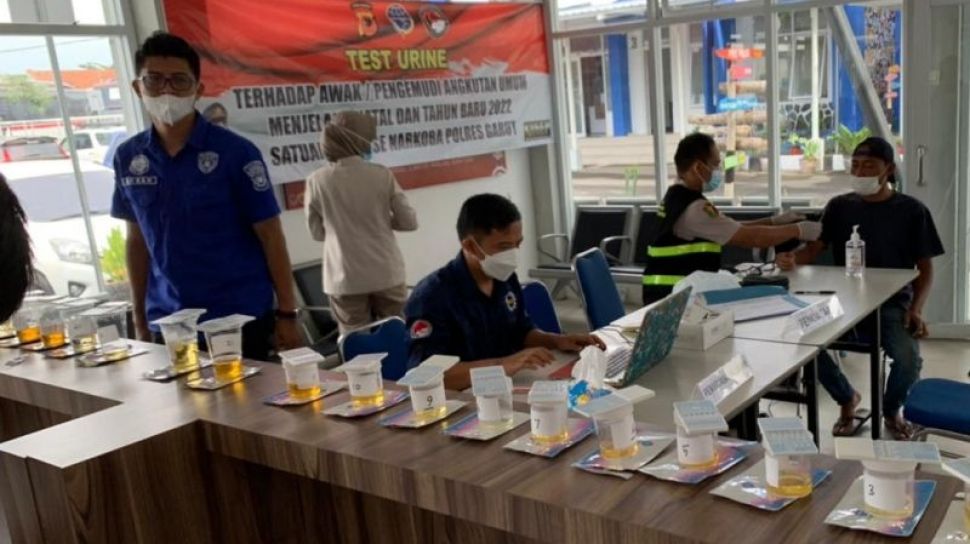Officers check the health of bus drivers at Guntur Terminal, Garut Regency, West Java, Tuesday (12/21/2021). [ANTARA/Feri Purnama]
Urine tests can even be done on the baby to determine the presence or absence of protein and red blood cells in his urine.
SuaraSurakarta.id – Diseases of kidney For example, inflammation can be detected early, one of them is through a test or urine examination.
urine test This study was conducted to determine protein levels, albumin and creatinine ratios in urine.
“Early detection is important. If there is protein in the urine, it is already an early sign of kidney damage. Kidney illness chronic,” said Secretary General of the Indonesian Society of Hypertension (InaSH), Djoko Wibisono, quoted from AMONGFriday (18/2/2022)
Djoko said urine tests could even be done on babies to find out whether there is protein and red blood cells in their urine, which are early signs of autoimmune disease or inflammation in the kidneys.
Also Read:
Knowing Dorce Gamalama’s Disease: Kidney Stones, Hypoglycemia to Alzheimer’s Dementia
“It’s not uncommon for toddlers to be able to do dialysis because of autoimmune diseases, kidney inflammatory disease. Their urine must be detected early. Babies must also be detected, lest their urine contains protein, red blood cells. That’s an early sign. Only urine,” he said.
In addition to urine tests, blood tests are also recommended to assess the performance of the kidneys by looking at the levels of wastes in the blood such as urea and creatinine. Urine and blood tests can also help detect the presence or absence of inflammation in the kidneys.
“If you want to detect early, see the creatinine, the urine has protein leaks. This is not expensive. It is recommended to the public not to wait for illness before having a check-up. Blood tests to see the remains of body metabolism such as urea and creatinine, urine tests are very affordable, “said Djoko.
To confirm the condition of the kidneys, imaging can also be done such as ultrasound, MRI and CT-Scan to see the structure and size of the kidney as well as a kidney biopsy, which is taking a small sample of kidney tissue to determine the cause of kidney damage.
Kidney disease at stage 1 or 2 does not cause symptoms before entering the advanced category. When the condition is advanced, patients generally feel problems such as muscle cramps and muscle spasms, weight loss, loss of appetite, weakness, decreased mental acuity.
Also Read:
These 2 Indonesian Artists Live With One Kidney, Some Don’t Have One Since Birth
Other signs include pale face, nausea, vomiting, shortness of breath, seizures, swelling of the ankles, feet or hands, blood pressure that is difficult to control, shortness of breath, sleep disturbances to erectile dysfunction.
“Symptoms arise when they are advanced, namely 3,4 or 5. If you have been exposed to kia, you can treat or prevent the disease,” said Djoko, who also emphasized the importance of a healthy lifestyle as an effort to slow the disease’s worsening.
–


